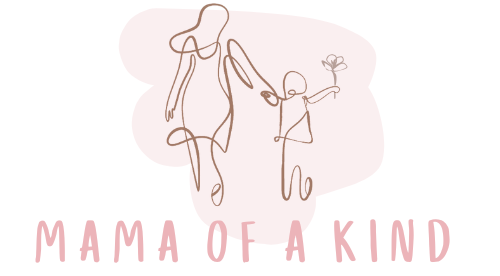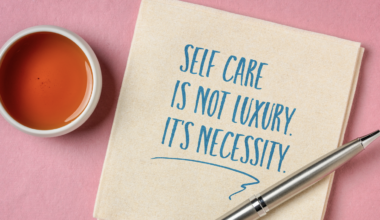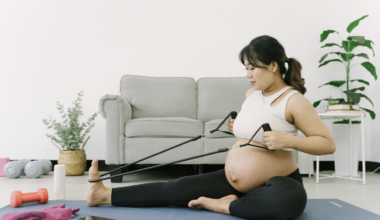Finding out that you’re pregnant is life changing. Now that you’re expecting & growing a new life, you must be wondering what’s next?
Here’s what to expect in the 1st trimester of pregnancy:
Physical Changes – Symptoms:

You might experience some physical symptoms in the 1st trimester, or possibly none at all. It all depends on your pregnancy. Your hormones have a huge impact on these symptoms.
Most of these symptoms might continue into the 2nd and 3rd trimester, but once again, it depends. To give you some reassurance, usually…the symptoms start dissipating after the 1st trimester is over.
Here are some of the symptoms you might experience during the 1st trimester:
- Nausea.
- The one we all dread. No, it’s not fun, that’s for sure. But hang in there. It usually doesn’t last past the 1st trimester.
- I know you’re also really worried because it’s hard to even think about eating anything and you’re trying to eat healthy for the development of your little baby. But, just know, this trimester is the “survival” trimester. Eat what you can, even if it’s mostly carbs! Don’t be too hard on yourself, you’ll catch up nutrition wise in the 2nd & 3rd trimesters. If it’s unbearable, talk to your health care provider as there are some things you can try to reduce the nausea (medication, ginger teas, etc).
- Fatigue / low energy.
- Time to hunker down. Take it easy. You might feel like all you want to do is nap all the time or have a harder time waking up in the morning. This is so normal…I mean you’re growing a little human! That requires a lot of your energy to do that.
- Insomnia.
- Yes, the opposite of fatigue could happen. This is attributed to the change in hormones. Try to keep a good sleep hygiene; avoid screen time before bed which might keep you awake.
- Heartburn / Indigestion / Constipation / Frequent need to urinate.
- Your growing uterus is starting to press on your intestines, bladder and rectum. Heartburn can also happen and it could be from certain foods you eat or the time of the day. Your whole digestive system is slowed down due to an increase in progesterone levels.
- Tender breasts.
- It can be painful. They can feel much fuller than they were pre-pregnancy. You can try putting a warm compress on them to alleviate some of the pain.
- Headaches.
- Stay hydrated as much as you can. Speak with your healthcare provider to see which methods are safe for you to use to take care of any re-occurring and painful headaches.
Baby’s Growth

The 1st trimester is the 1st to the 12th week of pregnancy. The heart is already starting to beat as of the 4th week, and by the end of the 8th week, you can hear the heartbeat using a doppler machine!1 As of the 12th week, the embryo is called a fetus and is the size of a lime! The eyelids have formed, the legs and arms are fully formed and fingernails and toenails start to appear.1
The fetus is the most vulnerable in the 1st trimester as it’s forming all of its organs and body systems. So, it’s important to be cautious about consuming substances; smoking, drugs, toxic chemicals, alcohol, etc.1
Prenatal Care

Once you find out you’re pregnant, it’s time to find an OBGYN or a doctor who will follow you throughout your pregnancy, if you don’t have one already. If you currently have a family doctor, or a GP, you can call their office and ask for a referral. You will then be scheduling your first prenatal appointment!
At your first appointment, your doctor will ask you a few questions to know your medical history as well as your family and partner’s history. Your doctor will also make sure that you are taking prenatal vitamins, which you can easily buy at your local drugstore.
Most first prenatal appointments are scheduled towards the end of your 1st trimester and it’s more of a general check up.
You might not have a first ultrasound – this may easily be at or a bit after the 12th week, depending on your medical circumstances or any previous pregnancy complications you may have had.
Lifestyle Changes

Your doctor should tell you about the things that you shouldn’t be doing or taking, such as smoking, taking drugs, drinking alcohol, etc.
Certain changes in your lifestyle after learning you’re pregnant can definitely be abrupt and disruptive. But these recommendations are in place in order to ensure that your little one is growing and developing safely and in a good environment.
When it comes to working out or doing exercise…what specialists say is to not stop doing whatever you were doing. Of course, don’t overdue it. If you were doing high intensity workouts or some form of CrossFit, maybe you could slow the pace down a bit. Your body will tell you. We also have an article about the 8 Benefits of Exercise During Pregnancy that we invite you to read!
The general rule is, if you were exercising before pregnancy, you usually can keep doing the same during your pregnancy. However, if you’re new to exercising or working out, you should start slow and pick up the pace gradually.
Exercising during pregnancy has many benefits. Do speak with your doctor about what you can do. There are certain exercises that you should either modify or not use while pregnant (for example, some abdominal crunches).
In Conclusion
Finding out that you’re pregnant can be such a beautiful moment. Sometimes, it’s nice to have some guidance on what you should expect from your 1st trimester. But each pregnancy is unique, and not one mama will experience the same pregnancy as another mama.
Many of the 1st trimester symptoms can be rough to deal with. For most women, it’s the nausea that kicks the hardest and we often wonder if it’ll ever end or how on earth we’re able to get through this! Keep reminding yourself that it’s temporary and that your doctor is there to help you in any way they can.
Please let us know in the comments; what was the hardest thing for you to deal with in your 1st trimester?
Sources:




